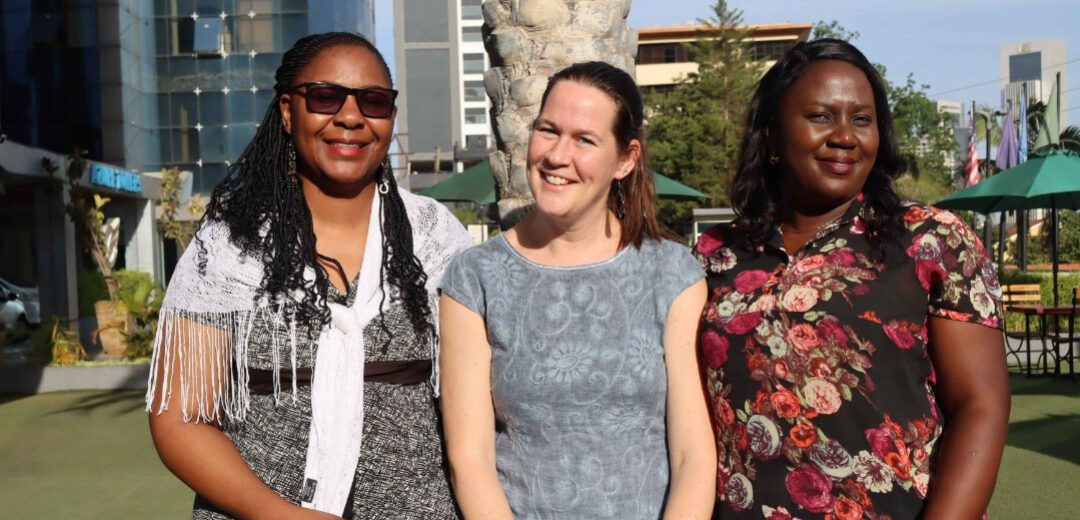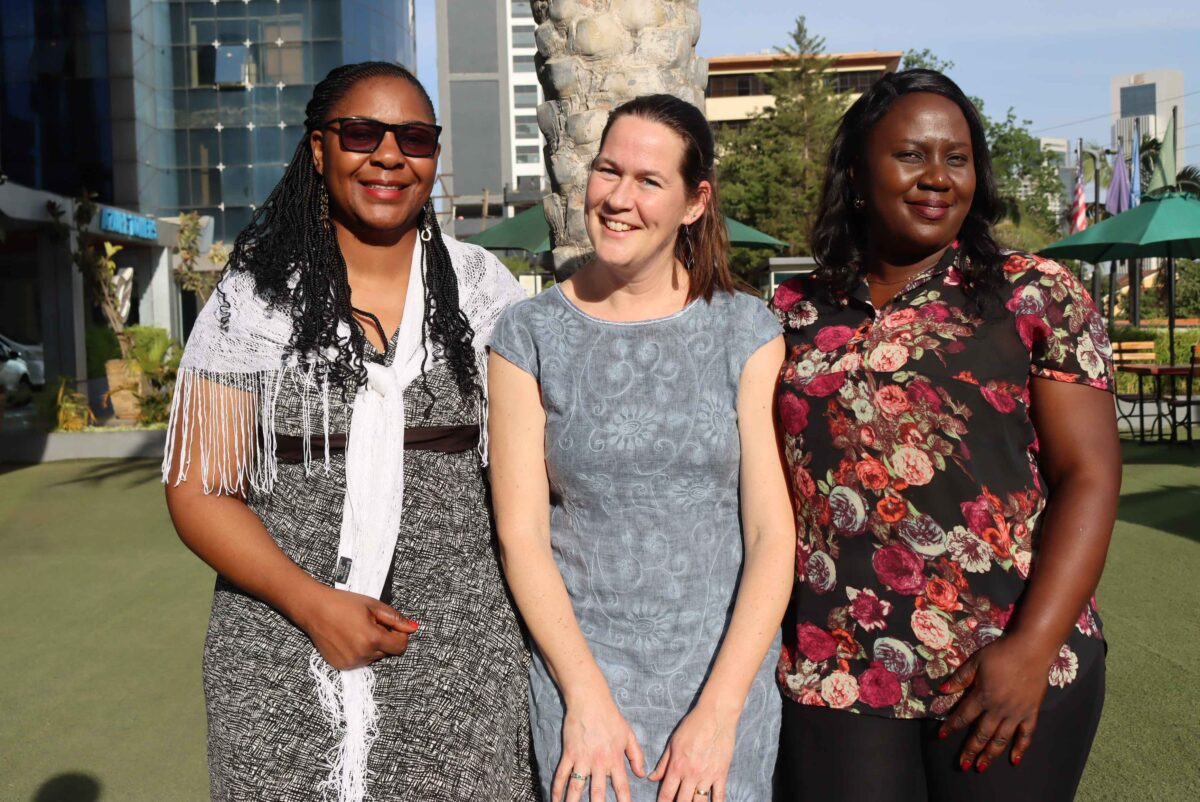
Photo: Fasutine Chepchirchir(CDSK)
Advocating for the ratification of the African Disability Protocol in Zambia
The Cheshire Homes Society of Zambia has been playing an instrumental role in protecting and promoting the rights of persons with disabilities. In order to achieve this goal, and together with like-minded partners, they are now advocating for the urgent ratification of the Africa Disability Protocol by the government. This protocol will be a significant step towards upholding the rights of persons with disabilities in the country.
In Zambia, at Cheshire Homes Society of Zambia (CHSZ), two passionate women work on the Make Way programme. Patience is the Make Way Project Manager at CHSZ and her focus on disability rights comes from her close relatives and friends who live with a disability; she witnessed their challenges, especially the discrimination they face daily, and this motivates her to speak up about disability rights.
Lucy is the Communications Officer whose passion for disability rights stems from her experience raising her nephew after the death of his mother. He was born without disability but acquired Cerebral Palsy (CP) after suffering from severe yellow fever at 6 months old. This motivated Lucy to further her education in special education needs.

In Zambia, attitudes towards people with disabilities are negative; they face stigma and discrimination in their communities and their workplaces. Many public and private infrastructures are not physically accessible to people with disabilities. Information is not available in appropriate formats such as braille, large print or sign language interpretation. This causes people with disabilities to miss out on pertinent information, meetings and media broadcasts. For young persons with disabilities, the situation is particularly challenging.
Outdated policies
Based on this, is the fact that Zambian laws and policies are not harmonized with the standards of the UN Convention on the Rights of Persons with Disabilities (UNCRPD) and the Persons with Disabilities Act. Patience explains the need for policy advocacy: “Zambia is still using archaic laws that were used in the colonial era. Most policies and laws are not inclusive of persons with disabilities. Some are actually discriminatory towards them. All operations and programming in the government are guided by policy. Consequently, if the policy is negative and does not include minorities, the target populations will be left out. Therefore, policy advocacy is the key to addressing exclusion at all levels.”
The African Disability Protocol (ADP) is the legal framework based on which all member states of the African Union are expected to formulate disability laws and policies to promote disability rights in their countries. The Protocol was adopted at the regional level in Banjul in 2018, and it has to be signed and ratified before it can be domesticated into national laws. The ADP is more intersectional than the global UNCRPD; it is tailored to the African context and upholds the rights of persons with disabilities from an African viewpoint.
The Protocol addresses unique and contextual challenges and incorporates detailed issues such as customs, traditional beliefs, harmful practices and the role of the family, caregivers, and community. It also deals with community-based rehabilitation and minority groups within the African disability community, including people with albinism.
The Protocol
Patience explains: “Zambia needs to uphold democracy, human rights, the rule of law, and the promotion of the principles of non-discrimination, inclusion and equality. The Government needs to maintain its position in the international community as a country that respects human rights and the dignity of its citizens. This includes persons with disabilities. As Zambia adheres to the principle of Vision 2030 and the SDGs of ‘leaving no one behind,’ it is essential that the Government also signs and ratifies the African Disability Protocol.”
With technical support from the Liliane Foundation, CHSZ has been mobilizing program partners and organizations of persons with disabilities to develop a policy brief to justify signing and ratifying the ADP since September 2021. With that policy brief as the basis, CHSZ and partners have undertaken several advocacy efforts with government line ministries, mainstream and social media, and civil society organizations including organisations of (young) people with disabilities.
Lucy explains how the consortium has been working with various media in Zambia in this process: “Media plays a vital role in keeping everyone updated on various processes and advocacy efforts undertaken by CHSZ and partners. With the help of the media, we raised awareness of the need to have the ADP signed and ratified by the Government of Zambia. We also informed stakeholders and the public about the importance of our advocacy for the ADP. Media attention helped to further our cause and to make the public aware.”
The regional advocacy campaign to ratify the ADP, launched in November 2022 by the African Union and Sight savers, may provide an extra push to this extraordinary advocacy effort at the national level. Patience and Lucy from CHSZ will remain at the forefront to raise their voice for those who are often ignored or overlooked. Follow @CHSZ9 and the hashtags #DisabilityRights and #RatifyTheADP on social media. This will help you to see how these fierce advocates and a growing coalition of passionate advocates work to ensure no one is left behind.

Leave a Reply